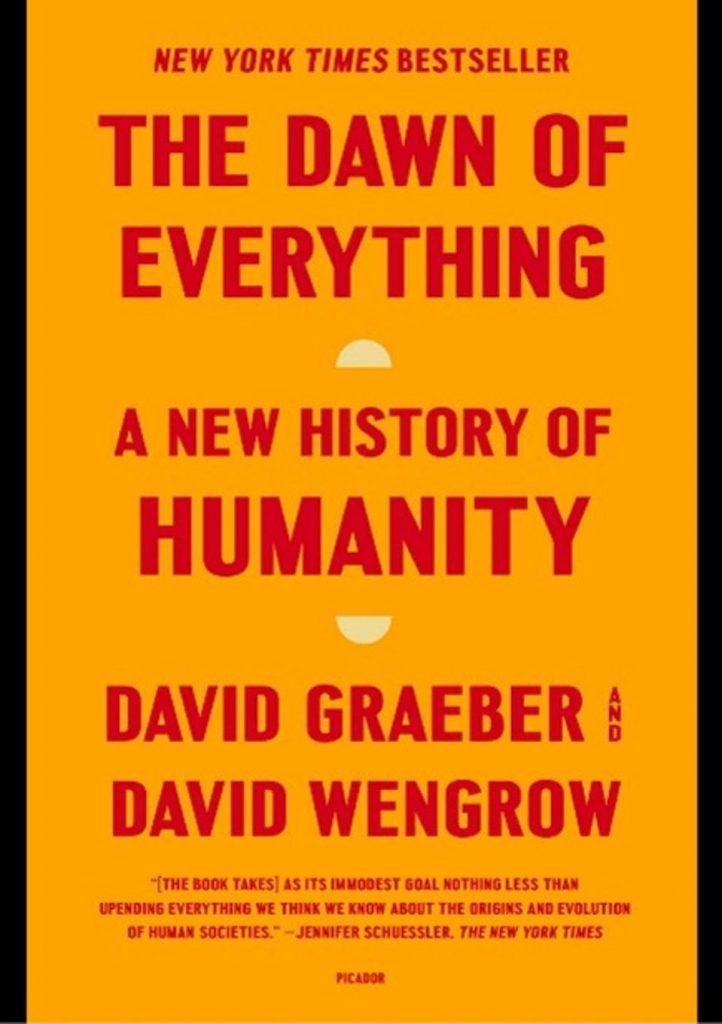In an era where corporate rigidity and short-termism stifle innovation, David Graeber and David Wengrow’s The Dawn of Everything: A New History Of Humanity (2021) delivers a profound revelation: human history is not a grim march toward inequality and bureaucracy, but a canvas of deliberate, playful experimentation. Drawing on vast archaeological and anthropological evidence, the authors dismantle linear narratives of “progress,” showing that ancient societies often chose egalitarian, flexible structures over domination. At its core, the book champions three foundational freedoms—the ability to abandon flawed systems, disobey unjust authorities, and imagine bold new social forms—as pathways to resilient communities.
These ideas echo strikingly in value creation principles backed by McKinsey, Gallup, and BCG data, which advocate for customer-centric delight, autonomous networks, and adaptive mindsets to propel firms beyond traditional hierarchies. Far from mere coincidence, this synergy roots modern business strategies in timeless human capacities, urging leaders to reclaim our innate potential for collaborative thriving.
Customer Value Over Short-Term Profits
Consider first the imperative to prioritize customer value over short-term profit, a principle that fosters sustained delight and long-term flourishing. Graeber and Wengrow shatter the myth that agriculture doomed humans to exploitation, highlighting societies like Japan’s Jōmon culture or Amazonian egalitarians who maintained abundance through bio-diverse, low-labor practices centered on communal well-being. Short-term extraction, they argue, led to ecological and social collapse, paralleling the “unwitting malpractice” value creation approaches attribute to profit-obsessed firms—where cost-cutting erodes vitality, with only 27% of U.S. companies focusing on enduring returns, per McKinsey. Instead, the book proposes “play economies,” such as potlatch feasts or gift systems, where value flows freely to cultivate loyalty and resilience, eschewing hoarding for mutual enrichment.
This resonates elegantly with the value creation emphasis on customer delight as the engine of organic growth. Firms like Costco, with its membership perks, exemplify this, delivering a 709% 10-year total shareholder return (TSR) against the S&P 500’s 234%, while achieving 20-30% higher growth and 60% profitability, according to Deloitte and McKinsey. As Peter Drucker noted, profit emerges as a byproduct, not the aim. Graeber and Wengrow’s seasonal “off-seasons” for reflection mirror customer feedback loops that slash churn and spark innovation, per Forrester. This shared ethic transforms value creation into a form of mutual aid, seen in out-performers like e.l.f. Beauty’s 445% TSR through affordable delight or Bodega Numanthia’s terror-driven wines under LVMH, blending heritage with networks to build cult loyalty amid environmental pressures. By focusing on delight, businesses not only outperform but sustain ecosystems, proving that true value lies in reciprocity, not extraction.
Equally compelling is the shift toward networks over hierarchy, promoting autonomy and voluntary cooperation. Graeber and Wengrow demonstrate that scale need not breed domination: unwalled cities like Çatalhöyük (8,000 residents in equal dwellings) or Teotihuacan (100,000 in uniform apartments sans palaces) flourished through loose federations and rotating councils, rejecting the violence of sovereignty. Hierarchies, they contend, arose from “freedom-stealing” mechanisms like bureaucracy, traceable to the Axial Age’s domestication of power. Their call for “network anarchism”—inspired by modern examples like Rojava’s confederalism or Mondragon’s cooperatives—includes “disobedience seasons” to dismantle temporary leaders, fostering schismogenesis: cultural divergences that enhance agility and prevent stagnation.
Autonomous Networks Over Hierarchies Of Authority
Value creation principles align seamlessly here, showing autonomous networks yield 2.5 times the financial performance and 4.8 times the innovation, per McKinsey. Amazon’s small, empowered teams (751% TSR) and Alphabet’s flat structures (400% TSR) outpace hierarchical stragglers like Boeing (81% TSR) or Nokia (-10% TSR). Both frameworks celebrate interactivity: the book’s seasonal societies—hierarchical for summer projects, egalitarian for winter play—parallel “multiplicative” networks, where trust drives 42% productivity gains (Gallup) and 20-30% faster tech adoption (Deloitte). Graeber and Wengrow’s historical precedents, such as Tlaxcalan alliances defying Aztec imperialism, inspire contemporary “ego-proof” models like Vienna’s communal housing. Value creation analyses of DJIA—Nvidia’s decentralized engineering at 31,318% TSR—or European STOXX standouts like ASML (1,070% TSR) illustrate the point: hierarchies foster silos, as in Europe’s regulatory drag, while networks liberate knowledge-sharing, akin to indigenous assemblies.
Adaptive Mindsets Over Rigid Processes
Finally, adaptive mindsets triumph over rigid processes, cultivating imagination and playful experimentation. Graeber and Wengrow attribute modern “stuckness” to the erosion of the three freedoms, advocating an “optimistic nihilism”—joyful prototyping free from dogmatic myths like Hobbesian brutality or Rousseau’s noble savages. Practical steps include “social labs” merging art and anthropology (e.g., blockchain for governance), veto powers in assemblies (Ireland’s Citizens’ Assemblies), and education spotlighting alternatives to ignite activism. This revives overlooked dynamics, like women’s influence and humor as antidotes to authority.
Value creation approaches dovetail perfectly: “learn-it-all” cultures, with 50-60% more coaching (Springer), unlock 20-30% innovation surges (Wharton,), as in Microsoft’s pivot (1,246% TSR) or Salesforce’s AI agility (243% TSR), versus mechanistic failures like 3M (89% TSR). Both critique rigidity—the book’s “violence machines” of states mirror Taylor’s processes, causing 40-70% change failures (McKinsey). Graeber and Wengrow’s “freedom feasts” for debating norms echo outcome-focused agility, yielding 14% productivity (Gallup). This explains Hermès’ fluid luxury (546% TSR), evolving like the book’s “refusal movements” (Zapatistas, Luddites).
Eternal Truths, Not Fleeting Trends
The parallels forge a profound synergy, with 80-90% conceptual overlap: The Dawn of Everything supplies the anthropological depth, affirming value creation principles as eternal truths, not fleeting trends. Both wield rigorous evidence—archaeology versus McKinsey/Gallup—to avert decline in “stuck” systems, like Europe’s silos trailing U.S. dynamism. Differences temper the vision: the book’s societal scope and anarchist optimism contrast value creation caveats, including hybrids like Nvidia’s engaged leadership. Together, they craft a manifesto: reclaim freedoms through delight, networks, and adaptation for not just profit, but joyful, sustainable worlds. As outdated practices fall away, history proves renewal is always possible—inviting boardrooms to blend indigenous wisdom with AI-era agility for a brighter future.

